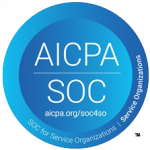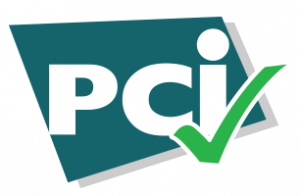Maybe you’ve heard the saying “garbage in, garbage out”—it’s a popular one in the computer science world. It refers to the idea that if you have low-quality input, you’ll necessarily get low-quality output. In revenue cycle management, that input is your patient data.

And if that patient data is low-quality—redundant, riddled with errors, or outdated—you could feed it to the most cutting-edge revenue cycle analytics system available and get very little value from it.
As our leadership team says, many healthcare organizations today are “data rich but information poor.” RCM teams have data on everything from the number of patient contacts to the reasons they were receiving medical treatment, but if that data isn’t regularly scrubbed, updated, and maintained, then it can lead to faulty assumptions that ultimately harm both patient experience and your bottom line.
So how do you ensure that the data your team is collecting and using is high quality? Let’s take a look at what data quality is, its impact on your RCM team’s operations, and strategies for revenue-fueling improvement.
The Foundation of RCM: Understanding Data Quality
Strong data is the foundation of effective and efficient RCM processes.
Key Components of Data Quality
Data quality, according to IBM, is a measure of how well a dataset meets criteria for seven different categories:
- Validity
- Accuracy
- Completeness
- Consistency
- Timeliness
- Fitness for purpose
- Uniqueness
In an RCM environment, we would understand these components like this:
Validity would indicate whether and how well your revenue cycle data fits required formatting—for example, is a patient’s street number input in the “street number” field, or is the entire address, with city and state, put into the street number field? If there is incorrect formatting, how many times does it appear?
Accuracy is exactly what it sounds like: How accurate is the patient data that you have? This can become a big issue in RCM, especially when trying to collect payment for bad debt that may have been incurred a significant amount of time in the past. If addresses, phone numbers, or last names have changed, that can greatly impact your success in terms of crucial RCM metrics like Right Party Contract (RPC) Rate, Average Payment Per Call, and ultimately, foundational metrics like Bad Debt Rate.
Pulling data from multiple sources can also affect your data accuracy. If possible, RCM teams should have a “single source of truth,” or SSOT—a single place where an organization’s data “lives,” so that it is standardized and consistent across the organization.
Completeness refers to how much of the data is usable, or complete. If there are lots of missing fields, that data may be biased or unhelpful.
Consistency indicates whether data is consistent across multiple sources. For example, is a patient’s information the same both in the clinical records and the billing records?
Timeliness means whether data is available when it is needed. Is your RCM team able to access the records they require when they need to perform specific functions: for example, following up on bad debt or pursuing an appeal for a denied claim?
Fitness for purpose simply means whether a dataset fills a need. Does your team have the right data for their job functions? Do they also have lots of other, meaningless data that makes it difficult to find the information they do need?
Finally, uniqueness indicates how much duplicate data is in the dataset. If your RCM team was conducting a data audit and found that multiple patients have the same ID in the system, that could be a red flag that would require further analysis.
Challenges in Maintaining Data Quality
While AI and automation can help support the maintenance of data quality, there will always be difficulties in keeping your data top-notch.
One of these is simple human error. The more times data is manually changed or migrated, the more opportunities there are for errors to arise.
Another frequent problem is outdated data. If your RCM team is receiving data from another department or another organization, it can be difficult to determine when the data was updated as an entire dataset, or how much of it is current, if it wasn’t all updated at the same time.
Migrating data from one platform to another, or tying together two disparate data systems can also diminish data quality. Joining one system to another can result in data being lost or improperly formatted, which will require additional time to clean up the data and restore quality.
And sometimes, the problem is simply that the amount of data an RCM team receives is too large, requiring intensive time on the part of your team to pare it down into something usable.
performance-driving RCM insights?
The Impact of Data Quality on Revenue Cycle Processes
Data quality will affect every stage of your revenue cycle, but it’s especially vital in three areas:
- Denials management
- Patient outreach
- Long-term financial health
Denials Management and Data Quality
Denied claims typically account for a significant revenue loss for healthcare providers, with unrecovered revenue rising well into the hundreds of thousands (or even millions) for many providers.
Poor data quality can be a major culprit here. If a code is transcribed incorrectly or placed in an incorrect field, suddenly your RCM team is dealing with a payer rejection or denial—and one that was totally preventable.
Rather than simply reacting to these denials, it’s a best practice to invest in tools that will help you take proactive steps toward reducing denials and rejections in the first place. AI can be of use here, with some organizations—including our team at Revco—developing and testing bots to assist with the more repetitive tasks of data maintenance. Your RCM team should also leverage denials management analytics to win more appeals and maximize cash flow.
Patient Outreach
At Revco, we follow a simple but powerful model: Success in both early out and bad debt collection comes down to connecting with the right patients in the right way at the right time. Without top-quality data, this becomes impossible, and your organization will miss out on vital revenue because of it.
With superior data, though, your team will be able to connect with patients in the way that they prefer while minimizing wait times and hold times, then guide them steadily toward the payment option that’s best for them (and for your bottom line).
Long-Term Revenue Effects
Low-quality patient data not only can have serious consequences for your overall patient experience, but it will also negatively affect your revenue integrity.
When patient data is outdated, inaccurate, or incomplete, interactions with your RCM team can become more frustrating for your patients. If your patients frequently have to correct wrong information, haven’t been receiving bills for the past six months, or are perhaps dealing with the financial ramifications of a denied claim, it’s going to be much more challenging to give that patient a positive experience that will motivate them to return to your organization the next time they need care.
Of course, that patient frustration also impacts the likelihood that they will want to work with your team to resolve any unpaid bills.
When it comes to revenue integrity, low-quality patient data can lead to revenue leakage due to missent bills, delays in collecting payments, and the need for claim or bill edits. Most importantly, it can damage the patient experience (and by extension, your brand reputation)—serious obstacles on your organization’s path to sustainable financial growth.
Strategies for Improving Data Quality in RCM
Reactive steps, such as correcting mistakes when they surface, will always be a part of data quality maintenance in RCM.
However, RCM teams can greatly reduce the need for reactive action by developing processes and utilizing tools that address data quality proactively. Two important aspects of this approach are data governance procedures and technological support.
Implementing Robust Data Governance
Broadly speaking, data governance policies define how your organization gathers, maintains, and secures data. These policies dictate who can access it and how, and ensure that it’s usable when accessed.
When a robust data governance program is in place, organizations can be confident that the data they’re using is consistent and accurate, and that there are systems in place to correct issues, should they arise. One of the most important functions of a data governance policy is to standardize the way data is accessed and used. This is critical for both data privacy as well as security and regulatory compliance.
Designing a data governance policy is not a one-person job, and requires collaboration between the RCM team, IT, and ideally other departments in your healthcare organization.
Leveraging Technology for Data Quality Improvement
Using technology that can compare and validate datasets, surface discrepancies, and speed up the standardization of data can save your RCM team huge amounts of time and resources.
Of course, it’s imperative to ensure that you choose a tool that’s right for your organization—otherwise, you risk simply introducing more opportunities for error into your data processes. AI and machine learning can also be highly useful for data capture and validation, allowing your team to automate the more tedious processes.
No matter how advanced your technology is, there will always be issues or mistakes that require human intervention. Maybe a department isn’t storing patient emails or phone numbers in a way that allows for reporting, for example. If so—and this is something our team at Revco has dealt with in the past—you may need to ask your team to do this manually, going back to “rebuild” the system from the beginning so that it allows for automation or reporting in the future.
Explore Revco’s Data-Fueled RCM Services
At Revco, our team integrates the best of both data-driven processes and patient-centered service into our work. We utilize advanced technology, with a focus on actionable analytics, to support our compassionate, patient-first, and efficient RCM services.
Whether we’re reaching out to your patients to facilitate payment or resolving a denied claim, we do so on a foundation of rock-solid data to create as many positive outcomes as possible for your organization.
If you’d like to pursue unprecedented financial success while delivering an outstanding patient experience, reach out today.






